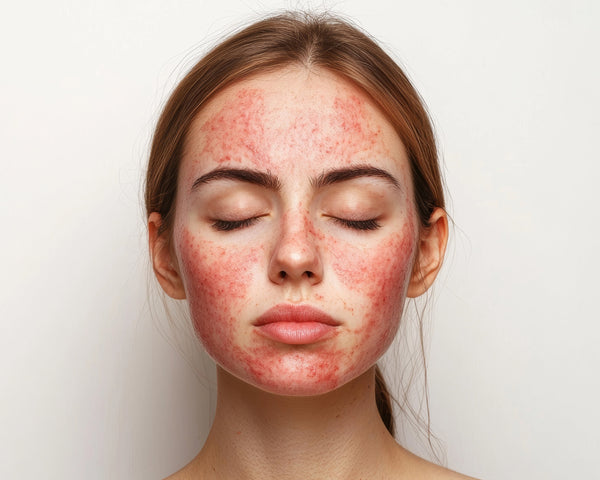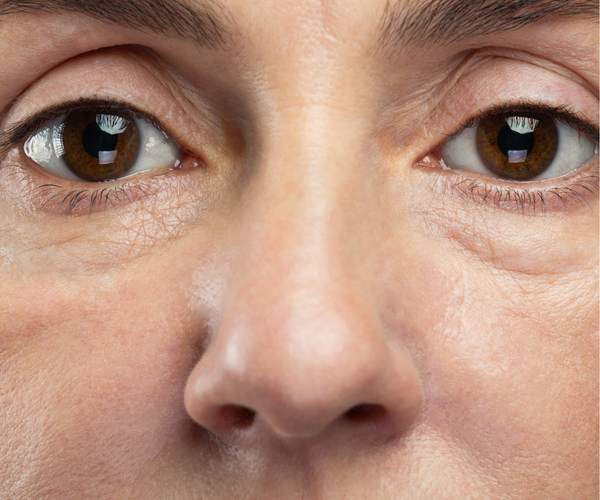What is Aging Skin and How to Care for It

What is Aging Skin?
Aging skin is a natural process that affects everyone. As we get older, our skin undergoes several changes due to a decline in collagen and elastin production, hormonal shifts, and environmental factors. These changes can lead to wrinkles, dryness, age spots, and loss of firmness. Understanding these changes is the first step to effectively caring for aging skin.
The visible signs of aging skin can vary from person to person, and the rate at which these changes occur also differs based on genetics, lifestyle choices, and sun exposure.
Signs of Aging Skin
- Wrinkles and Fine Lines: These are the most noticeable signs of aging skin. They are caused by the breakdown of collagen and elastin, resulting in a loss of skin elasticity and firmness.
- Dryness: As we age, our skin produces less oil, leading to dryness, itchiness, and flaking.
- Age Spots (Solar Lentigines): These are brown or dark spots that appear on sun-exposed areas of the skin. They are caused by years of sun damage.
- Loss of Firmness and Elasticity: The decrease in collagen and elastin results in sagging skin, particularly around the face, neck, and arms.
- Thinning Skin: The skin becomes thinner and more delicate with age, making it more susceptible to injury and bruising.
- Increased Sensitivity: Aging skin can become more sensitive to certain products and environmental factors.
How to Care for Aging Skin
Caring for aging skin involves adopting a holistic approach that incorporates a good skincare routine, a healthy lifestyle, and protection from the sun. Here's a detailed guide:
1. Skincare Routine
- Gentle Cleanser: Use a gentle, fragrance-free cleanser to remove dirt and impurities without stripping the skin's natural oils.
- Moisturizer: Apply a rich, hydrating moisturizer daily to keep your skin hydrated and supple. Look for moisturizers containing hyaluronic acid or ceramides, which help to retain moisture.
- Sunscreen: This is arguably the most crucial step. Use a broad-spectrum sunscreen with an SPF of 30 or higher every day, even on cloudy days. Sun damage is a major contributor to premature aging.
- Retinoids: These vitamin A derivatives are powerful anti-aging ingredients. They help to increase collagen production, reduce wrinkles, and improve skin texture. Start with a low concentration and gradually increase it as tolerated.
- Antioxidants: Antioxidants like vitamin C and vitamin E help to protect the skin from free radical damage, which contributes to aging.
- Exfoliation: Gently exfoliate your skin 1-2 times a week to remove dead skin cells and reveal brighter, smoother skin. Choose a gentle exfoliant, such as a chemical exfoliant containing AHA or BHA.
2. Healthy Lifestyle
- Diet: Eat a balanced diet rich in fruits, vegetables, and antioxidants. A healthy diet contributes to overall skin health.
- Hydration: Drink plenty of water to keep your skin hydrated from the inside out.
- Sleep: Aim for 7-8 hours of quality sleep per night. Sleep is essential for skin repair and regeneration.
- Stress Management: Chronic stress can negatively impact skin health. Practice stress-reducing techniques such as yoga, meditation, or spending time in nature.
- Avoid Smoking: Smoking accelerates the aging process and damages the skin.
3. Professional Treatments
In addition to your home care routine, you may consider professional treatments to further address the signs of aging. These can include:
- Chemical Peels: Chemical peels can help to improve skin texture and reduce wrinkles.
- Microdermabrasion: Microdermabrasion exfoliates the skin to improve its appearance.
- Laser Treatments: Laser treatments can help to reduce wrinkles, age spots, and other signs of aging.
- Fillers and Botox: Fillers and Botox can be used to temporarily fill wrinkles and restore volume.
Conclusion
Aging skin is a natural process, but by following a comprehensive skincare routine, adopting a healthy lifestyle, and seeking professional treatments when necessary, you can maintain healthy, radiant skin and gracefully navigate the aging process.
Disclaimer: This information is for educational purposes only and is not intended as medical advice. Consult with a dermatologist or healthcare professional for personalized recommendations.




